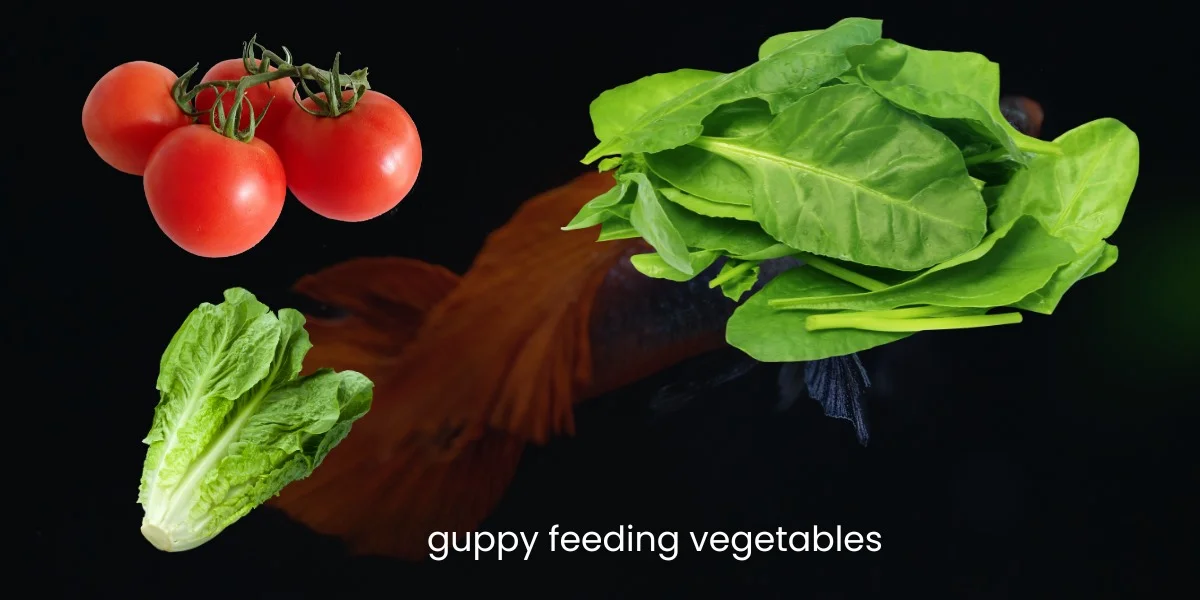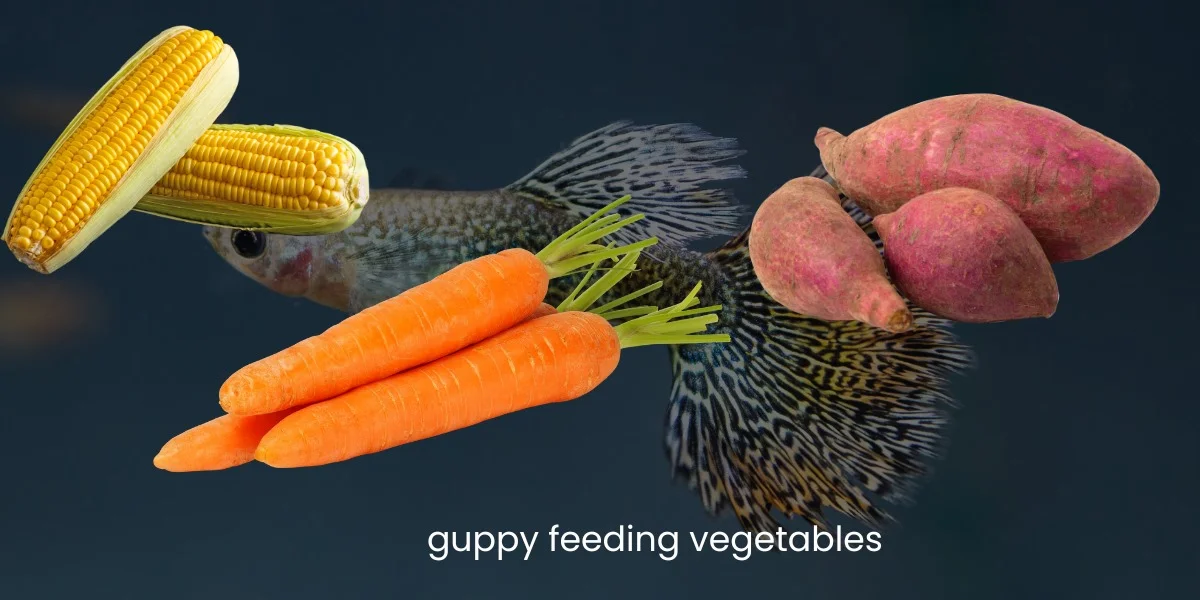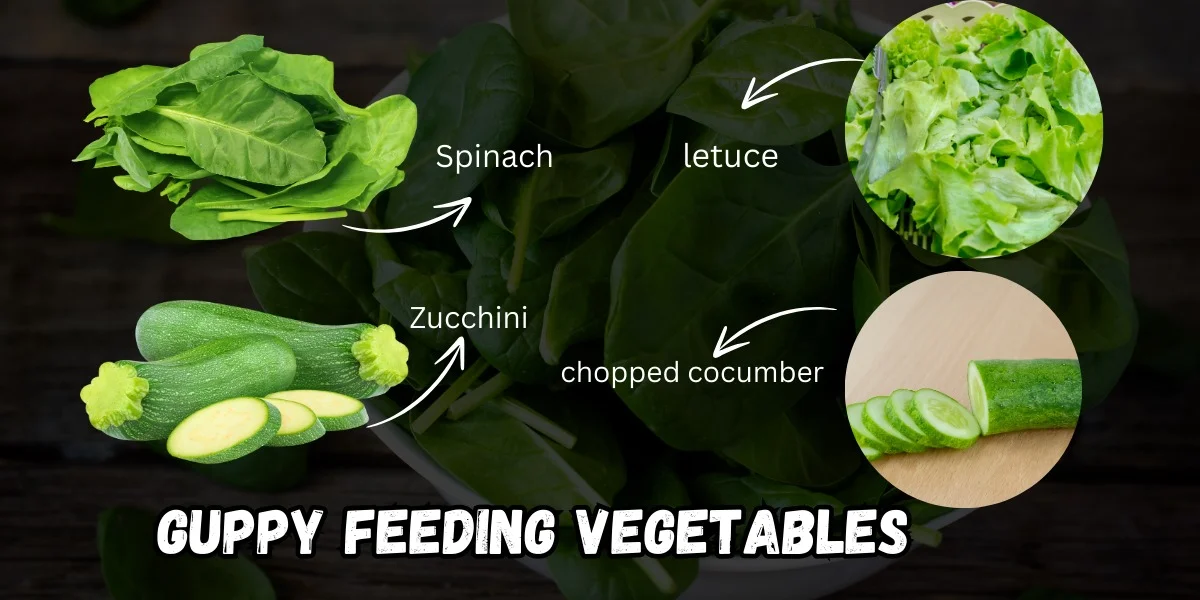Guppies are one of the most popular fish for home aquariums. They are colorful, lively, and easy to take care of, making them perfect for both beginners and experienced fish keepers. One important part of taking care of guppies is making sure they get the right food. While guppies usually eat fish flakes or pellets, adding vegetables to their diet can be very beneficial.
In this article, we will explore everything you need to know about feeding vegetables to guppies. We will cover why vegetables are good for guppies, which vegetables they can eat, how to prepare these vegetables, and how often you should feed them. By the end of this guide, you’ll be ready to give your guppies a healthy, balanced diet that includes vegetables.
Why Are Vegetables Good for Guppies?
Vegetables are a great addition to a guppy’s diet because they provide essential vitamins and nutrients that fish flakes or pellets might not have. Just like humans, guppies need a variety of foods to stay healthy. While their main diet should still be fish flakes or pellets, vegetables can offer several benefits:
- Rich in Nutrients: Vegetables are full of vitamins, minerals, and fiber that help guppies grow strong and stay healthy. For example, spinach is rich in iron, which is good for their blood, while peas help with digestion.
- Helps with Digestion: Some vegetables, like peas, can help prevent constipation in guppies. This is important because constipation can lead to serious health problems for fish.
- Enhances Color: Vegetables can help make the colors of your guppies brighter and more vibrant. This is because many vegetables contain natural pigments that can enhance the coloration of your fish.
- Variety in Diet: Just like us, guppies enjoy a variety of foods. Feeding them different types of vegetables can make their diet more interesting and enjoyable.
- Natural Feeding Behavior: In the wild, guppies eat a variety of foods, including plants and algae. Feeding them vegetables in captivity helps mimic their natural diet and can make them feel more at home in your aquarium.
Which Vegetables Can Guppies Eat?
Not all vegetables are safe for guppies, so it’s important to know which ones to feed them. Here is a list of vegetables that are safe and healthy for guppies:
Related reading: What Human Food Can Guppies Eat?

- Spinach: Spinach is rich in iron and other essential nutrients. It’s soft, making it easy for guppies to eat. Spinach is also good for their overall health and helps keep their colors bright.
- Lettuce: Lettuce is another soft vegetable that guppies can easily eat. It’s full of fiber, which is good for their digestion. Romaine lettuce is a better choice than iceberg lettuce because it has more nutrients.
- Zucchini: Zucchini is a favorite among many fish, including guppies. It’s soft and full of water, making it easy to eat and digest. Zucchini is also rich in vitamins.
- Peas: Peas are excellent for guppies because they help with digestion. They are especially good for preventing constipation. However, you need to remove the outer skin before feeding them to your guppies.
- Cucumber: Cucumber is another soft vegetable that guppies love. It’s mostly water, so it’s easy for them to eat. Cucumber also provides some vitamins and helps keep your guppies hydrated.
- Carrots: While carrots are harder than some other vegetables, they can be fed to guppies if cooked until soft. Carrots are rich in beta-carotene, which can enhance the color of your fish.
- Broccoli: Broccoli is a nutrient-rich vegetable that can be fed to guppies. However, it should be cooked until soft to make it easier for them to eat.
- Pumpkin: Pumpkin is another good option, especially during the fall season. It’s rich in nutrients and can be a nice treat for your guppies when cooked and softened.
- Green Beans: Green beans are full of fiber and nutrients. Like peas, they should be cooked and have the skin removed before feeding them to your guppies.
- Bell Peppers: Bell peppers, especially red ones, are rich in vitamins and can help enhance the color of your guppies. Make sure to cook them until they are soft.
How to Prepare Vegetables for Guppies?
Once you have chosen the vegetables you want to feed your guppies, it’s important to prepare them properly. Here are the steps to follow:
- Wash the Vegetables: Always start by washing the vegetables thoroughly. This removes any dirt, pesticides, or chemicals that might be harmful to your guppies.
- Cook the Vegetables: Most vegetables should be cooked slightly to soften them. You can boil, steam, or blanch the vegetables until they are soft enough for your guppies to eat. Cooking also makes it easier for guppies to digest the vegetables.
- Cut into Small Pieces: Guppies have small mouths, so it’s important to cut the vegetables into tiny pieces. This makes it easier for them to eat and reduces the risk of choking.
- Peel if Necessary: Some vegetables, like peas, need to be peeled before feeding. The outer skin can be tough for guppies to digest, so removing it helps them eat the vegetables more easily.
- Cool Down the Vegetables: After cooking, let the vegetables cool down before adding them to the tank. Hot food can harm your guppies.
- Feed in Small Amounts: Start by feeding small amounts of vegetables to see how your guppies react. If they eat it quickly, you can offer more. If they leave it, reduce the amount next time.
- Remove Uneaten Vegetables: It’s important to remove any uneaten vegetables from the tank after a few hours. This prevents the vegetables from rotting, which can dirty the water and harm your fish.
How Often Should You Feed Vegetables to Guppies?
Vegetables should be a part of your guppies’ diet, but not their only food. Fish flakes or pellets should still make up the majority of their diet. You can feed vegetables to your guppies a few times a week as a supplement to their regular food.
Here’s a simple feeding schedule you can follow:

- Monday: Fish flakes or pellets
- Tuesday: Small amount of vegetables (e.g., spinach or peas)
- Wednesday: Fish flakes or pellets
- Thursday: Small amount of vegetables (e.g., zucchini or cucumber)
- Friday: Fish flakes or pellets
- Saturday: Small amount of vegetables (e.g., lettuce or carrots)
- Sunday: Fish flakes or pellets
This schedule ensures that your guppies get a balanced diet with a variety of nutrients. Remember to adjust the amount of vegetables based on how much your guppies eat. If they seem to enjoy the vegetables, you can gradually increase the amount.
Tips for Feeding Vegetables to Guppies
Here are some additional tips to help you successfully feed vegetables to your guppies:
- Introduce New Foods Slowly: If your guppies are not used to eating vegetables, introduce them slowly. Start with small pieces and see how they react. It might take some time for them to get used to the new food.
- Observe Their Behavior: Watch how your guppies react when you add vegetables to the tank. If they eagerly eat the vegetables, it’s a good sign. If they ignore it, try a different type of vegetable or cut the pieces smaller.
- Vary the Vegetables: Don’t feed the same vegetable every time. Just like humans, guppies appreciate variety in their diet. Rotate between different types of vegetables to keep their diet interesting and nutritious.
- Avoid Overfeeding: While vegetables are healthy, overfeeding can still cause problems. Too much food can lead to water quality issues and make your guppies sick. Stick to small portions and remove any uneaten food.
- Be Patient: If your guppies don’t take to vegetables right away, don’t give up. It might take a few tries for them to start enjoying the new food. Be patient and keep offering small amounts until they get used to it.
- Use a Feeding Clip: A feeding clip can be a handy tool for holding vegetables in place in the tank. It keeps the food from floating around and makes it easier for your guppies to eat.
Conclusion
Feeding vegetables to your guppies is a great way to enhance their diet and keep them healthy. Vegetables provide essential vitamins, minerals, and fiber that fish flakes or pellets might not have. By adding a variety of vegetables to their diet, you can help your guppies grow strong, maintain vibrant colors, and enjoy a balanced diet.
